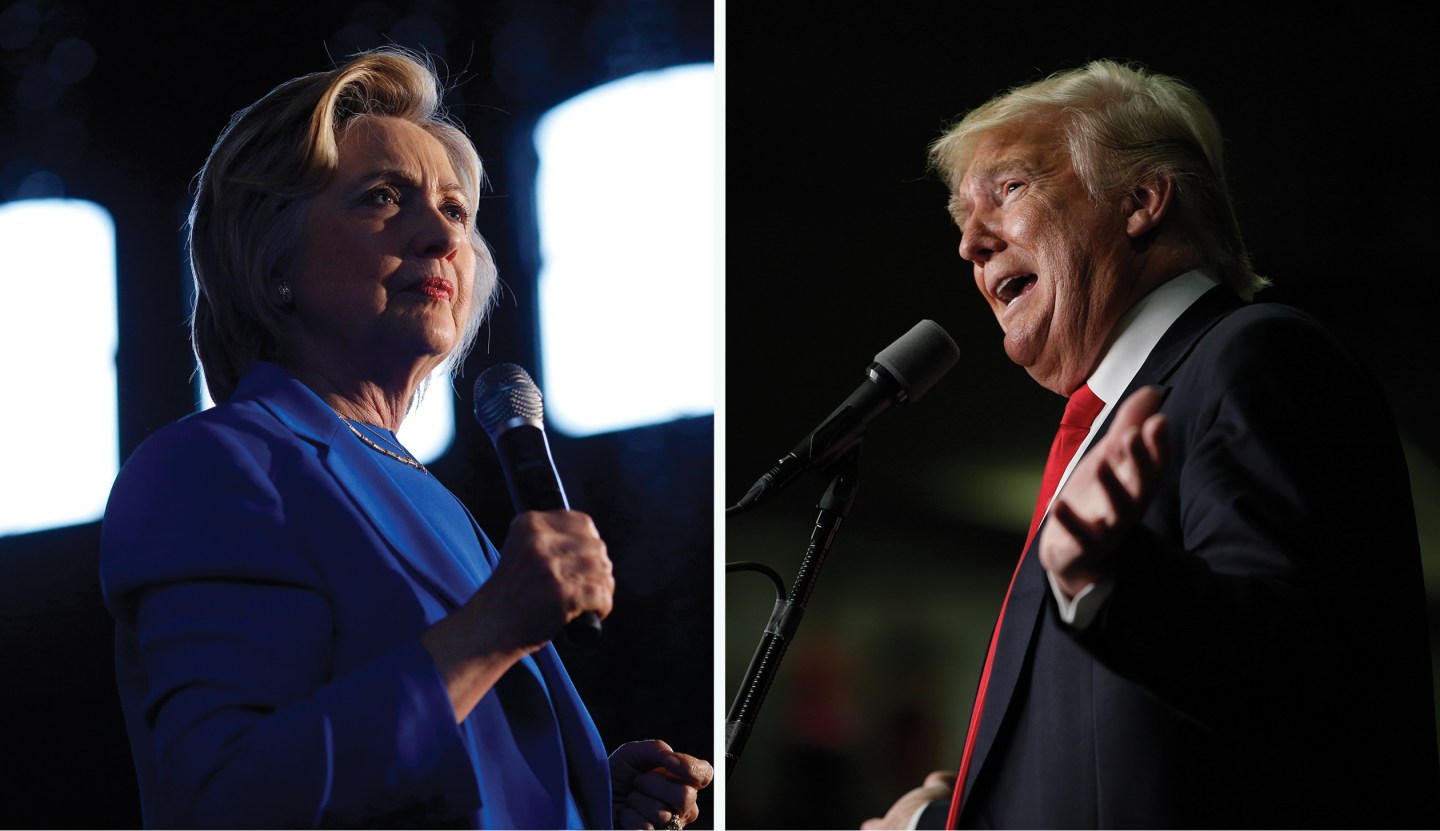Both Hillary Clinton and Donald Trump have proposed tax plans that would include carried interest being reclassified as ordinary income. Or, put another way, America’s next president wants to raise taxes on investment profits earned by venture capitalists, private equity executives and hedge fund managers.
There’s nothing new about a Democratic presidential nominee seeking to close the carried interest loophole (Barack Obama campaigned on this in both 2008 and 2012), but Trump’s endorsement puts industry lobbying groups in an unfamiliar position of having to persuade both parties to maintain the status quo.
So, not surprisingly, National Venture Capital Association CEO Bobby Franklin and chairman Venky Ganesan, a partner with Menlo Ventures, last week launched an “education” campaign via an appearance on CNBC and corresponding column.
My goal here isn’t to litigate the merits of capital gains vs. ordinary income—I’ve been making the case to eliminate the carried interest tax loophole for a decade—but rather to highlight how the NVCA has chosen to reframe its argument based, in large part, on a phone conversation I had yesterday with Franklin.
In the past, NVCA has argued that a change to carried interest tax treatment would result in a significant decrease of venture capital investments to U.S. startups. It was always specious, given that not a single VC would say on the record that they’d stop being a VC if the law was changed.
So Franklin has abandoned that claim, acknowledging that “current VCs will continue to invest.”
His new tack is to argue that a tax treatment change would discourage the next generation of VCs from emerging, particularly in geographic regions outside of VC hotbeds like Silicon Valley, Boston and New York.
“It’s already hard for an entrepreneur in Northwest Arkansas, for example, to find venture investment,” Franklin says. “Why would we want to make it even harder?”
Pretty smart strategic shift, particularly given that the vast majority of Congresspeople don’t represent one of the VC-favored zip codes. I’d still maintain my general argument that carried interest is an ordinary income, but Franklin has certainly pulled a reliable rhetorical arrow from my quiver.












